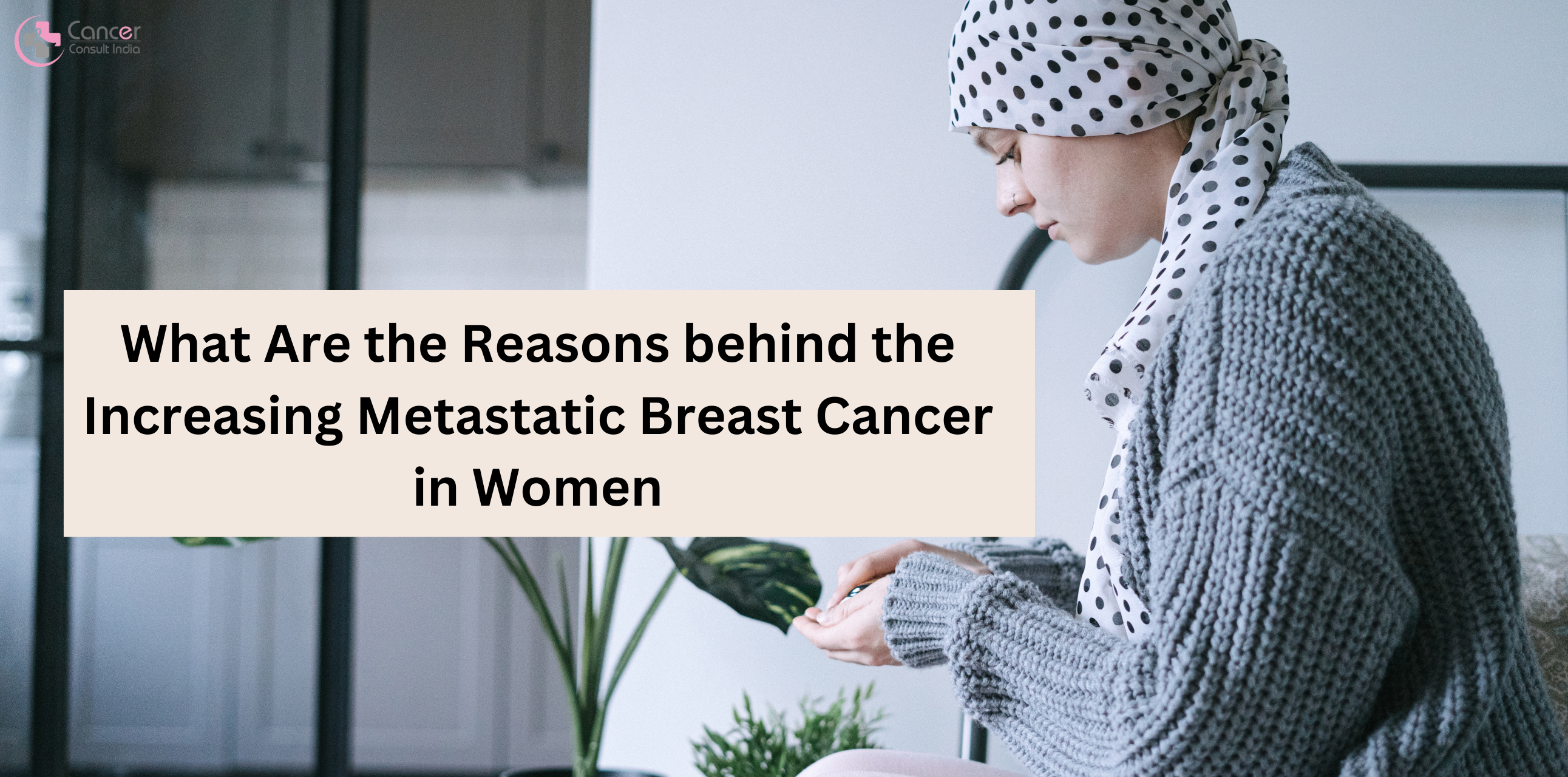Dr Manish Singhal - The best Cancer Specialist in Delhi
What Are the Reasons behind the Increasing Metastatic Breast Cancer in Women?

As per the report shared by the World Health Organization (WHO), more than 2.3 million cases of breast cancer occur every year, and the number is increasing at an alarming rate. Then, there is the unique challenge of rising rates of metastatic breast cancer among women of different age groups.
What's more – although incidents of metastatic breast cancer among younger women are still lower compared to the number of women over 50, we can’t ignore the fact that it is the leading cause of cancer death in women aged between 20 and 49.
With the rising rate of incidences, challenges, and more facts and data, the awareness of breast cancer may be improving. While one looks for breast cancer treatment In Noida and any other locations, it’s important to dig deeper to know about metastatic breast cancer and the reasons for the rising incidence of this cancer worldwide.
What Is Metastatic Breast Cancer?
Metastatic breast cancer (MBC) is stage IV or advanced stage breast cancer that spreads beyond the breast tissues and surrounding lymph nodes to other body parts, including the liver, lungs, bones, or brain.
According to healthcare providers, metastatic breast cancer cannot be cured. Still, the proper breast cancer treatment In Delhi can improve the quality of life among women with advanced breast cancer. The ray of hope is – with the advanced medical research and new ways of cancer treatment, women with metastatic breast cancer are living longer now.
Potential Reasons for Rising Incidence of Metastatic Breast Cancer
Researchers state that potential reasons for the increasing incidence of metastatic breast cancer are multifactorial and complex.
To improve public awareness of metastatic breast cancer, we'll discuss some potential factors that often increase the risk of developing this disease.
· Cancer Diagnosis at Advanced Stage
The primary reason for increasing cases of MBC is its late diagnosis. Women with stage II and stage III breast cancer are at a higher risk of developing MBC or stage IV stage of cancer compared to those with early-stage cancer.
While some people with metastatic breast cancer experience pronounced symptoms for bone, liver, lungs, or brain metastasis, others experience almost nil to subtle symptoms. As a result, the delay in diagnosing the disease leads to its progression to a more advanced stage.
· Incomplete or Lack of Treatment
There are many incidents where the malignant tumours may survive after the initial treatment of breast cancer, which leads to developing MBC.
Sometimes, the cancerous cells remain untreated due to a lack of awareness and support.
Insufficient or poor treatment may increase the risk of recurrence of cancer. Recurrent breast cancer occurs when radiation therapy cannot effectively destroy all cancer cells, the affected area cannot be completely removed, or chemotherapy fails to work as planned.
Dr. Manish Singhal, the leading breast cancer doctor in Noida, has been effectively treating patients with breast cancer, preventing the chance of the further spread of cancer cells.
· Age and Lifestyle Factors
Here are some facts –
According to the Breast Cancer Research Foundation, the rates of developing MBC in women under 40 increased 3.5 percent every year between 2004 and 2017.
Younger women are more prone to experience a recurrence of breast cancer after five to 10 years.
Younger women are more susceptible to having breast cancer with advanced tumour stage, the larger size of the tumour, and overexpression of the HER2 protein than older women.
Moreover, the changes in lifestyle, including childbearing, breastfeeding patterns, excessive body weight, and lack of sufficient physical exercise, also play leading roles in developing metastatic breast cancer.
· Genetic Risk Factor
Inherited mutations of BRCA1 and BRCA2 increase the risk of developing breast cancer. Now, studies reveal that younger women under 45 with breast cancer are more likely to be the carriers for BRCA mutations.
The chance of developing metastatic breast cancer is higher when it already occurs in one or more family members. Women inheriting BRCA mutations are always advised to stay under the observation of an oncologist in Delhi to eliminate the chance of cancer progression.
· Tumour Characteristics
The chance of developing metastatic cancer increases with the specific biological features of tumours. Factors like lymph node involvement, larger tumour size, and aggressive subtypes of triple-negative breast cancer make women more vulnerable to having MBC.
Takeaway
Developing metastatic breast cancer doesn't mean the end of life. With advanced medical research and treatments, women with metastatic breast cancer are living longer. With the consultation of an experienced oncologist in Noida, patients can live an improved quality of life. Stay connected with Cancer Consult India to fight against breast cancer!




